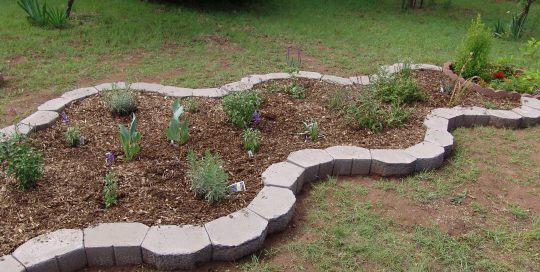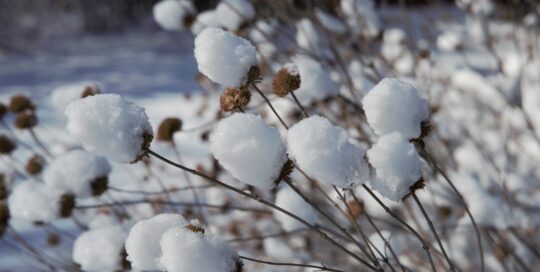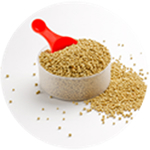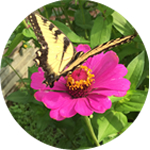Potential Consequences of Pesticide Application
Views: 925

“Tears are streaming down my face, and I am sad beyond measure. All my beautiful, wonderful, hardworking honeybees, except these last seven, are dead.”
This, and the accompanying photo, was the entry on a relative’s Facebook page a few years ago. Organic farmers in Washington state, my cousin and his wife lost their beehives to improper pesticide application. Instead of spraying alfalfa fields in the early morning before bees were flying, a neighboring farmer decided to spray at 1 pm in the afternoon. And just like that, all my cousins’ precious bees, along with the income they generated from crop pollination and honey, were gone.
While this was an incident in a rural, farming area, similar problems can occur on smaller scales in suburban and urban locations, as well. I lost a well-established rugosa rose when a neighbor decided to spray an herbicide on the other side of our privacy fence and didn’t think about what was on the other side. Some of the herbicide blew through the cracks and killed my beautiful rose. I was heartbroken.

I lost this rose when a neighbor sprayed an herbicide through cracks in our common fence.
Pesticides are a great tool to have available, and I use them myself, when appropriate. They aren’t always necessary, as my organic-farming cousin would tell you, but they simplify many aspects of gardening for many people. For every horror story about pesticide misuse, someone will tell you how a pesticide saved their tomato crop or protected their roses from black spot.
However, whether they are insecticides, herbicides, or some other-icide, all pesticides are toxic. Their toxicity may vary from very minor and quite specific in scope to quite dangerous and broad in scope. But they are all designed to kill something with great effectiveness. Because of that, they must be used carefully.
Pesticides are generally safe when used as directed. Always follow the instructions. Do NOT deviate. Do NOT improvise. And do NOT think that if a little is good, a lot will be better.
Consider what the instructions are telling you and ensure you understand them. Think about potential consequences. If the label tells you to avoid using the pesticide in an area or at a time when it might wash into a waterway, are you considering the drainage of your yard? Could the sprinklers in your yard wash it down your driveway and into a storm drain? (Storm drains lead to waterways.) If it says to spray it in the early morning, are you thinking about pollinators if you decide to do it later in the day when the bees are flying? If it says to spray when there is no wind, are you going to be poisoning your neighbor’s plants from pesticide drift if you ignore those instructions?
Pesticide companies want you to follow their application instructions to the letter. They don’t want you to misuse their product because of potential harmful consequences like the ones I described above. So, if a pesticide label tells you to wear protective gloves when using the product, wear protective gloves. If it tells you to wash your hands afterwards, wash your hands. If it says to use the product when the wind isn’t blowing, wait until a time the wind isn’t blowing.
Pesticides must be used properly. Read the label carefully and follow the directions. Doing so may prevent a lot of grief and heartbreak from unintended consequences.
Meet Leslie Miller
Leslie Ann Miller shares 3.5 acres in rural Oklahoma with birds, butterflies and wide variety of animals. She is currently transforming her yard with plantings…
Leslie's Recent Posts

Firescaping 101






